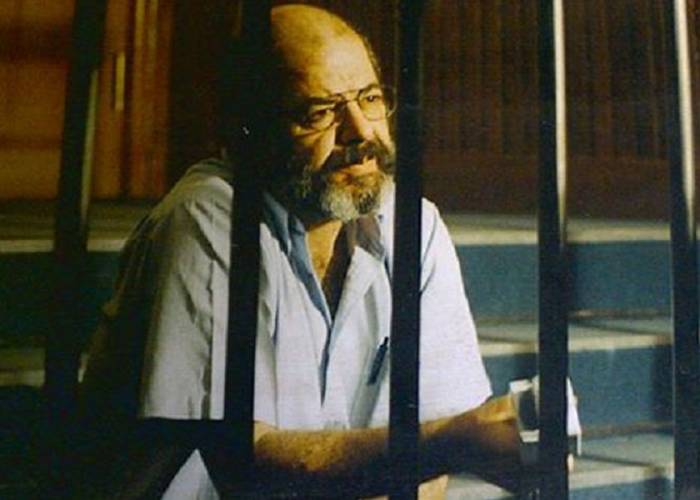Remembering A Courageous Writer: His Refusal of Censorship, of Exile, and of Silence
Photograph of Ghassan al-Jibai from the online media website Zaman al-Wasl.
The late Syrian writer Ghassan al-Jibai (1952-2022) was known for his intellectual activities across various art forms, from theater to novels and poetry — but though his craft came in many forms, each harnessed his steadfast opposition to tyranny and oppression. His career as a theater director, dramatist, and writer suffered immensely under the Syrian regime. Jibai is best remembered for his works about prison, several of which refer to his experiences as a Syrian political prisoner for almost a decade.
From an early age, Jibai was enamored with theater. He studied Arabic at Tishreen University and worked in theater as an actor since his youth before traveling to study abroad. In 1975, he received a scholarship to study theater directing at the Karpinika Kari Institute in Kyiv, Ukraine. He graduated with a master's degree in 1981, returning to Syria to teach at the Higher Institute of Dramatic Arts in Damascus. However, Syria's political climate snuffed out whatever dreams and ambitions he had planned and stole a decade of his life from him.
In 1982, Jibai was accused of being part of the Arab Democratic Socialist Baath Party and imprisoned in Palmyra until 1991, when he was released without trial. His experience as a prisoner colored the course of his career and his stance toward the Syrian regime. He maintained his opposition and refused to remain silent. "The most beautiful among us lost their mental balance, got sick, and committed suicide. We know them by name…So I still feel guilty. I haven't said everything yet. The motivation to write is always present," he said in an interview with Rahab Mouna Shukr in the pro-opposition Al Joumhouria journal.
Jibai did not shy away from sharing his story. During a 1996 meeting with the American academic and author Miriam Cooke, he shared details about being detained for a year in the cells of the military Investigation Branch, which were 20 feet underground. "We must remember that when we walk in the streets, we walk on the heads and bodies of detainees," said Jibai as quoted by Ali Safar in Al Modon. Additionally, he spoke about his experience in Hala Muhammad's documentary "A Journey in Memory" (2006) with colleagues Farag Bayrakdar and Yassin Hajj Saleh.
Excerpted from Elie Chalala and Naomi Pham's "Ghassan al-Jibai (1952-2022) - Remembering a Courageous Writer: His Refusal of Censorship, of Exile, and of Silence," which appeared in Al Jadid Magazine, Vol. 26, Nos. 82/83, 2022 and Inside Al Jadid Reports, No. 48, 2022.
Copyright © 2022 AL JADID MAGAZINE

